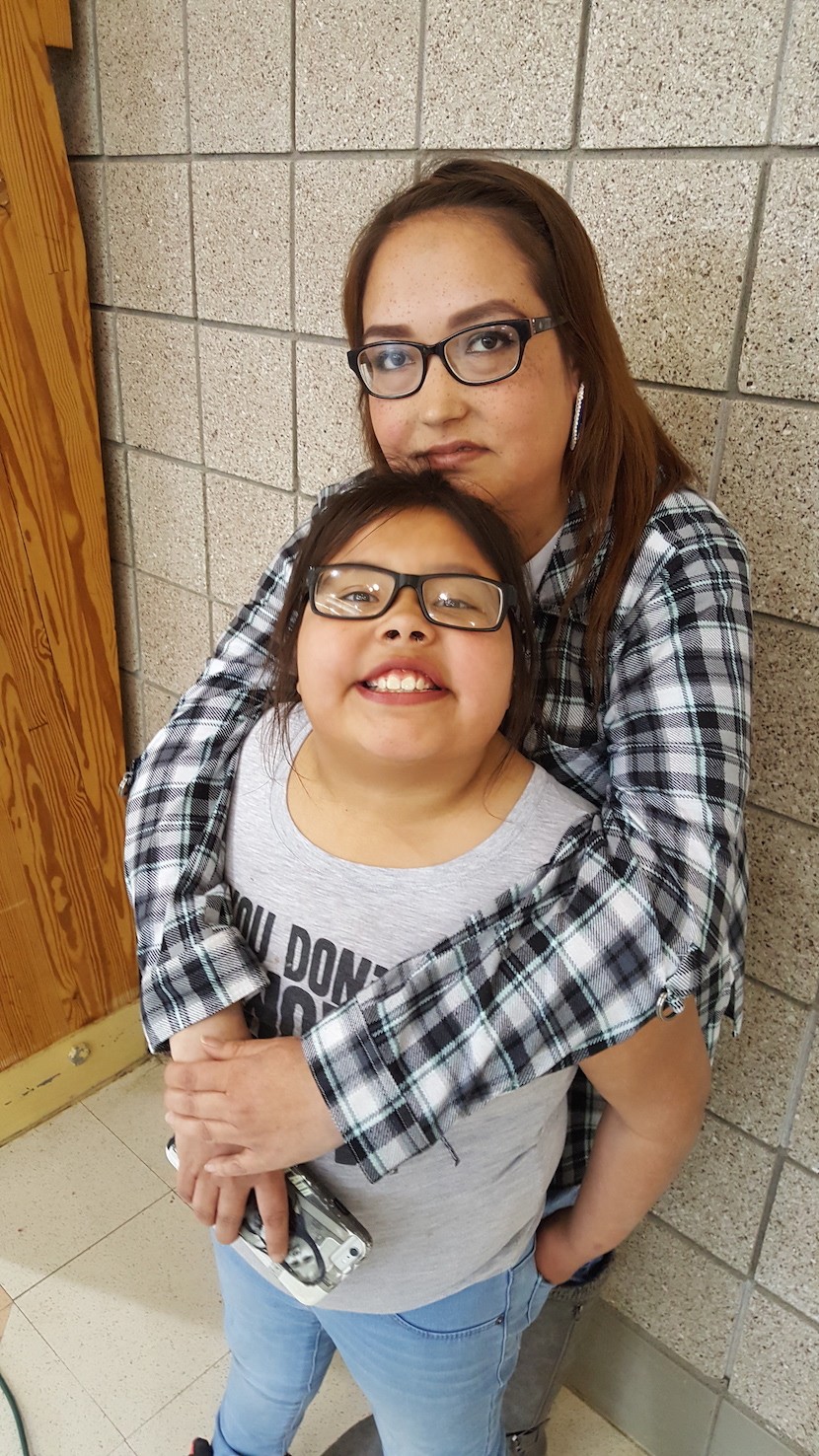
Story and Photo by Amikogaabawiikwe (Adrienne Benjamin) Mille Lacs Band Member
Cheyanne Peet is a District II Band member who works for the Niigaan Youth Program in Minisinaakwaang. She has been a miraculous and inspiring community member who courageously shares her joy for living with tribal youth. Now Cheyanne has decided to share her heartwarming story with the larger community through this article.
“The disorder that I have is called myasthenia gravis,” said Cheyanne.
Cheyanne began experiencing strange neurological symp- toms in July of 2009 at 19 years old.
“My first symptom was when I was trying to eat," she said. "Normally you are able to move food around in your mouth with your tongue, but I couldn’t get the food from the sides of my mouth. The food was getting stuck in my cheek, and it felt weird. I knew something was wrong, and it started happening more often, which became scary.”
It wasn’t until February 2010 that Cheyanne was fully diagnosed. “Over the next six months it started to get worse, and it got difficult to do simple things. My hand would drop forks, and I went through so many doctors. I couldn’t swallow or spit, and I would sleep with my eyes open because my eyelids wouldn’t shut.” By the point that she was fully diagnosed, she was gravely ill in the intensive care unit, wondering what was causing her rapid decline of health, and fearful for her future.
Cheyanne is now 28 years old and has come a long way physically and especially emotionally and spiritually thanks to her unique diagnosis. She has taken amazing strides to not just survive but thrive.
“So basically, my immune system is creating antibodies that are blocking the nerve receptors that go from my brain to my muscles," Cheyanne said. "Myasthenia gravis is an auto-immune disease. My speech gets slurred, chewing sometimes is difficult, my lips even fatigue, swallowing becomes an extremely hard task, my eyes get droopy, it’s hard to hold my head up, and even smiling is hard. When it’s really bad, it’ll get to my arms and legs, and little things like doing the dishes, which would be normal activity for other people, will cause me to have to sit down and rest.”
Although much of this sounds taxing and hard, Cheyanne doesn’t see it that way. “Some people are in wheelchairs with what I have. It’s called a snowflake disease because everyone is different. The voluntary muscles are what gets really bad for me, but when it gets really bad the scariest thing is when my involuntary system is involved and my breathing becomes affected.”
Cheyanne has chosen to look at the bright points of her illness and remain thankful and grateful throughout its ups and downs. “It’s taught me to appreciate EVERYTHING. I appreciate being able to go to the bathroom and being able to shower. It caused me to be happy and not question things anymore. It taught me to remember that I don’t know what everyone else is going through. I don’t always look sick, but inside I can feel miserable. When I do try and help people and they have a bad attitude, I have stopped judging and opened my heart to empathy, realizing that people don’t always know how to deal with their own emotions. It has helped me be able to work far better with people,” Cheyanne said.
“For a long time I would think about the worst things and that I wouldn’t make it and who would take care of my daughter, but I just had to accept it. I couldn’t let it determine everything that I do, but I had to allow it to be only a part of what I do. It took a whole lot of mental hard work to be okay with it. It was rough for a while, but once my mindset changed, my doctor said that my bloodwork is the best that he has seen it in three years!"
Cheyanne's daughter Shay has become a source of healing and inspiration throughout her journey. There is no cure, because it’s so different for everyone. There are only treatments that help provide quality of life in living with its effects. Cheyanne began to worry about how she would care for her young daughter, and whether she would be able to deliver an acceptable quality of life for her because of her diagnosis. “At first I felt terrible because I wasn’t able to read to her because I couldn’t finish the books when my mouth would get tired. She helped me realize that I was looking at it the wrong way. Instead of thinking that I was doing this horrible thing to her and giving her this awful life, she will see that and know that you can get through the hard stuff. I would think about how I would want her to handle it and so I started handling it that way, with pride and strength,” Cheyanne proclaimed. “I’m hoping that she learns strength and sees me as strong and that this isn’t something that stopped me from living my life. If she can see me overcoming this hard thing, then that’s what she will do with anything that comes into her life as well.”
Cheyanne had this beautiful ending to share: “I hope that people realize that you really can get through anything but that it takes hard work. There was a time where I cried every single day, but now I love my life. Yeah, I wish it was different, but now I realize how much I learned and what it’s taught me about life.
“I want people to know that there’s always light no matter how dark it is.”
Photo: Cheyanne and her daughter Shay are partners in the fight against myashthenia gravis.